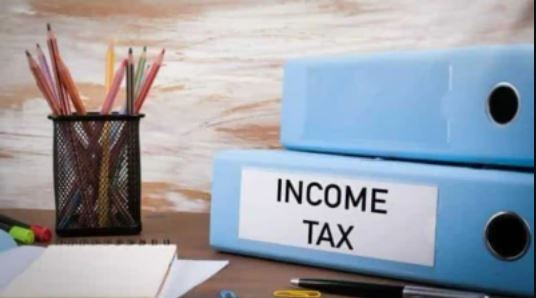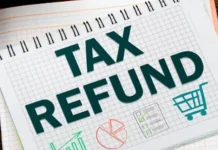
As soon as the new financial year 2022-23 starts, many rules related to income tax have changed.
These changes were announced by Finance Minister Nirmala Sitharaman in this year’s budget speech. In this, tax was announced on the income from crypto or digital assets including Provident Fund, then some facilities and relief have also been given to the taxpayers.
Many income tax rules have changed as soon as the new financial year 2022-23 starts. It is very important for you as a taxpayer to be aware of these changes. If you do not know about these changes yet, then we are going to tell you here which are the rules which have been changed.
these areIncome TaxThe 10 new rules that have come into force from April 1, 2022 are-
Provident fund tax
If you are employed and till now have been contributing more than Rs 2.5 lakh annually in your EPF (Employee provident fund) account, then doing so will now prove to be harmful for you.
Now you can deposit only up to Rs 2.5 lakh annually in your EPF account, which will be tax free. If you deposit more than this, you will have to pay tax on the interest earned on EPF.
Tax on income from crypto
Income from transfer of virtual digital assets has come under the tax net from April 1. Income tax will have to be paid on this at the rate of 30 percent.
That is, if you invest in cryptocurrencies, then tax has been made mandatory on the income from it. TDS of 1 per cent on this will be applicable from July 1, 2022. Finance MinisterNirmala SitharamanhasBudgetIn I announced the imposition of tax on the earnings from crypto assets.
Loss in crypto will not be compensated
Earnings from crypto or digital assets will be taxed, but on the contrary, if there is a loss, then it will not be able to compensate it from its profits. For example, if you buy two digital assets. There is a profit of Rs 100 in one and a loss of Rs 100 in the other.
In such a situation, you will have to pay income tax of 30 rupees on the profit of 100 rupees. At the same time, the loss of Rs 100 in the second asset will not be able to be compensated by the profit of the first asset. This option is available when investing in shares.
Tax on gifted digital assets also
If you receive cryptocurrency or any other virtual digital asset as a gift, then you will have to pay tax on it.
Updated return filing facility
In the new financial year, taxpayers have been given this special facility that if you want to file Income Tax Return (ITR) again by rectifying any mistake or mistake, then you can do so. Updated returns can be filed within two years of the assessment year.
NPS Deduction of State Government Employee
State government employees can now contribute up to 14% of their basic pay and dearness allowance to NPS. Earlier, the contribution limit was only up to 10 percent. That is, now they can also claim this deduction under section 80CCD(2) like the deduction available to Central Government employees.
With effect from April 1, 2022, surcharge at the rate of 15 per cent will be levied on long-term capital gains on all types of assets. Till now, surcharge was to be paid at this rate only on long-term capital gains made on shares of listed companies or mutual funds.
Additional deduction on house property
The facility of additional deduction available to first-time home buyers has been abolished from April 1. The facility of additional deduction of Rs 1.5 lakh on house property up to Rs 45 lakh was given till now in the Income Tax Rules.
Tax relief on expenditure on treatment of Kovid-19
Tax exemption on the amount received for the treatment of Kovid-19 will continue in 2022-23 as well. This amount should not exceed Rs 10 lakh. If a person dies due to Kovid, then the money should be received within 12 months of the person’s death.
Tax exemption to parents of disabled
Now a provision has been made to give tax exemption to the parents or guardians of disabled children. If they buy a life insurance policy, they can avail tax exemption subject to certain conditions.





